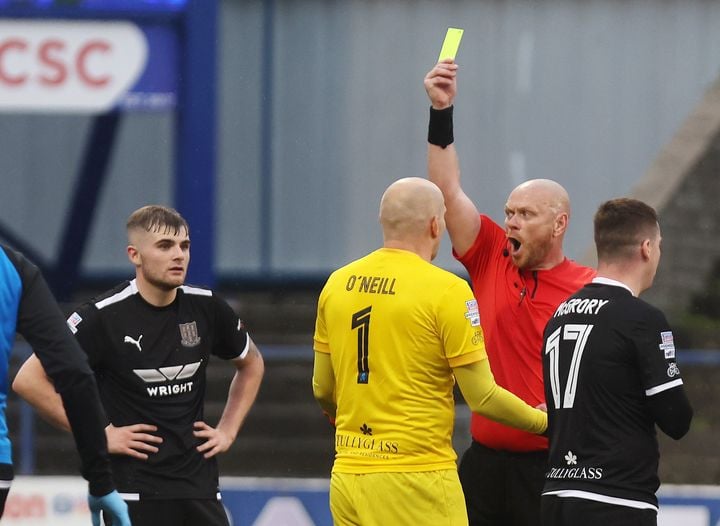The upcoming 2025/26 Irish League football season promises to usher in a significant era of change, with clubs across the Premiership and Championship divisions required to adapt swiftly to a raft of newly implemented football rule changes designed to enhance fair play, efficiency, and the overall flow of the game.
These pivotal amendments were formally ratified by the International Football Association Board (IFAB), the esteemed global authority on the Laws of the Game, during its crucial meeting held in Belfast this past March. The decisions underscore a continuous commitment to evolving football in response to modern dynamics and strategic considerations, aligning with new IFAB regulations.
One of the most talked-about directives is the ‘only the captain’ guideline, which strictly limits player dissent and interaction with match officials. This rule specifically addresses captain’s role football and dissent, ensuring that only the designated team captain can engage in meaningful dialogue with the official during match stoppages.
The practical implications of this rule for Irish League football clubs are substantial, demanding a re-evaluation of on-field leadership and communication strategies. Players will need to exercise greater discipline, while captains will bear increased responsibility in managing team frustrations and conveying legitimate concerns to the referee, fostering a more respectful environment.
Another significant alteration directly impacts goalkeepers with the introduction of a stringent new ‘eight-second rule’ for ball possession within their own penalty area. This regulation mandates that custodians release the ball from their hands or feet within an eight-second timeframe once they have secured possession, effectively discouraging goalkeeper time-wasting.
This modification will undeniably accelerate the pace of play and force goalkeepers to make quicker distribution decisions, potentially leading to more dynamic transitions and offensive opportunities for opposing teams. Irish League coaches are already devising new training drills to help their shot-stoppers adapt seamlessly to this faster tempo.
The cumulative effect of these football rule changes is anticipated to reshape tactical approaches and player conduct across the Irish League. Teams will dedicate considerable time during pre-season training to integrate these new mandates, ensuring full compliance and strategic advantages in the upcoming 2025/26 Season.
Clubs like those in the Playr-Fit Championship and Sports Direct Premiership will need to familiarise themselves thoroughly with these guidelines, which extend beyond just these two headline changes. Success in the new season might well hinge on the agility with which teams and individual players can adjust their ingrained habits and strategies under the new IFAB Regulations.






Leave a Reply